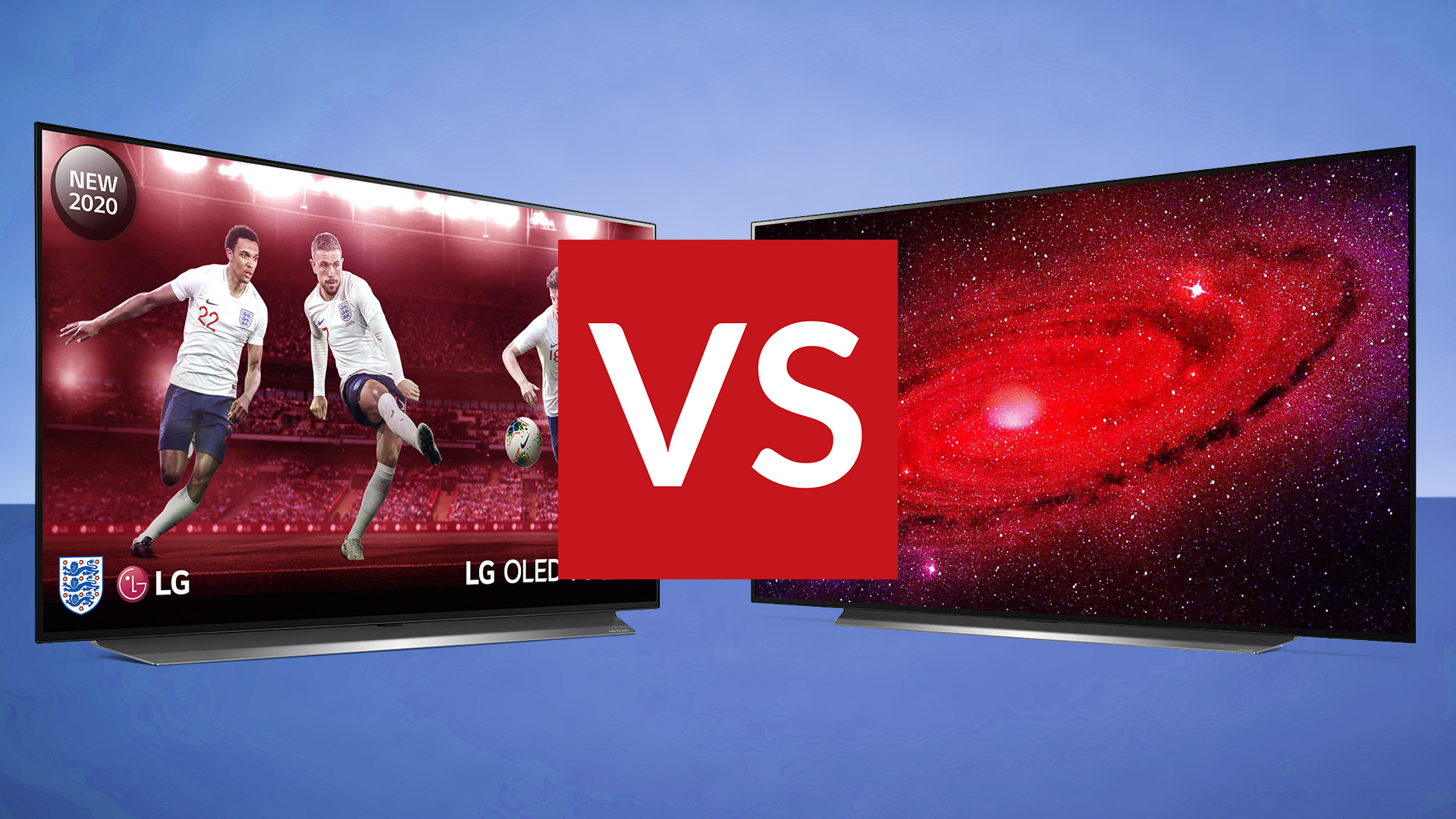
LG is big on OLED TVs. Really big. It's the only manufacturer that actually makes OLED TV screens, and while others like Sony absolutely put LG's panels to good use, it's maybe no surprise to see that LG offers the best OLED price/technology balance with its LG BX and LG CX TVs.
Years of experience gives the company a certain mastery over the form. LG's OLED TVs are phenomenally good – following our LG CX review, it sits in a dominant position in our list of the best OLED TVs, the best gaming TVs, and the best TVs of all kinds!
In 2020, the company's OLED range followed the same pattern as previous years, with a more budget-focused LG BX model sitting just below the LG CX in price, with the CX promising LG's best 4K OLED image quality for a modest extra cost. The difference between them on image quality isn't that big though, as our LG BX review reveals.
Further up the range, the GX and WX offer fancier designs and improved sound, but still the same image quality as the CX, just for lots more money.
Most people will go for either the LG BX or CX and save the extra money for one of the best soundbars to pair with it (and rightly too, in our opinion, unless you've got got money to splash)… but how do the two TVs compare, which should you go for? What do you gain, what do you lose, and is the difference really that big? Let's break it down.
- OLED vs QLED: the technologies explained
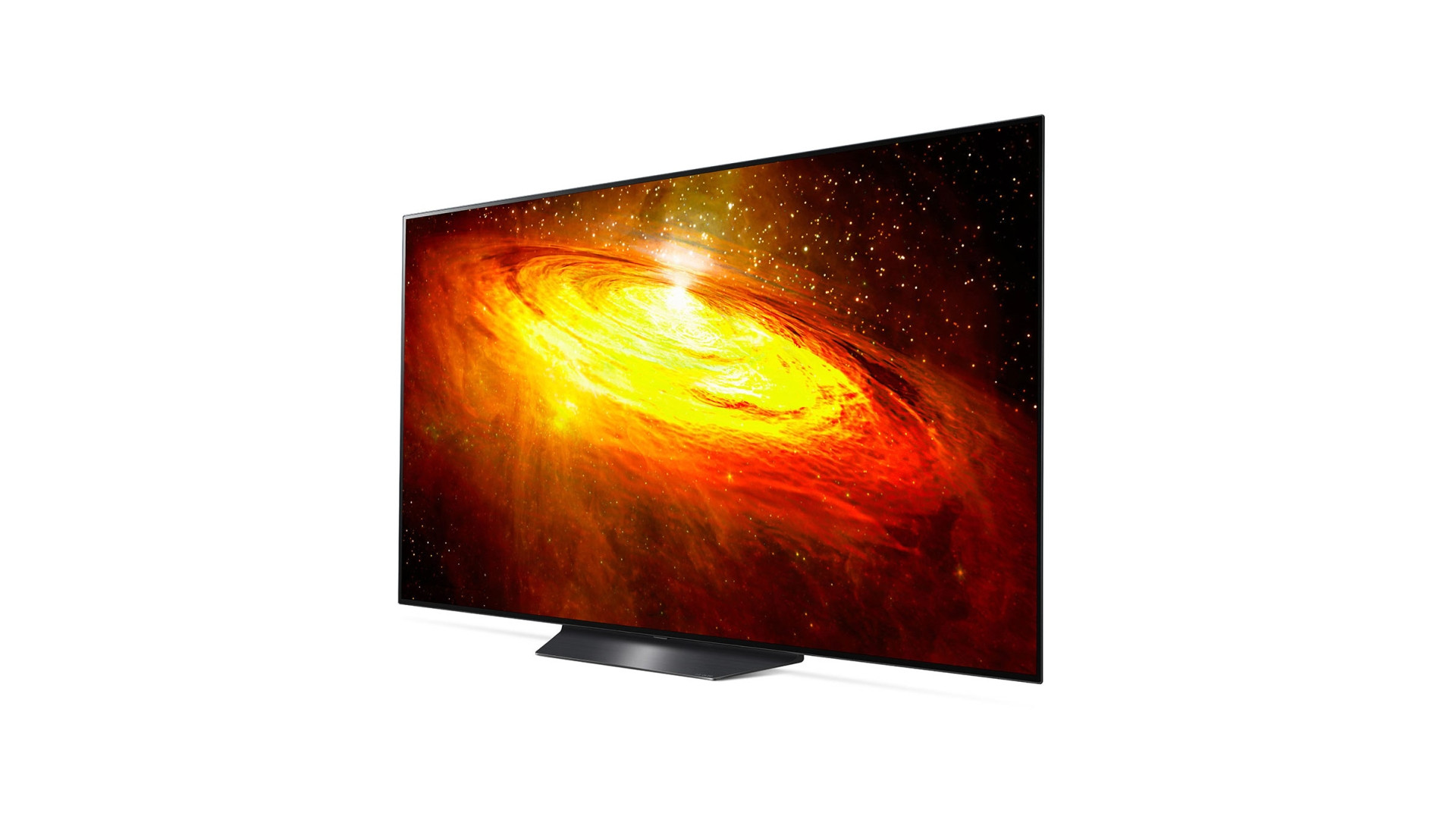
The LG BX is outwardly similar to last year's B9.
LG CX vs LG BX: Price
When you're outside of the really fancy flagship TVs, price is a real differentiator, and both these TVs offer great value – though there's an obvious winner in that the BX is lower. You'd hope so, because that's kinda the point of the entry-level BX range.
The 55-inch version starts from just £1,299/$1,599, while the 65-inch version of the BX is £1,999/$2,299 in the states.
Get all the latest news, reviews, deals and buying guides on gorgeous tech, home and active products from the T3 experts
That makes the smaller BX the most affordable OLED released in 2020, even when you factor in that the CX comes at a smaller size (as we'll see). Sony's cheapest OLED – the 55-inch Sony A8/A8H starts at £1,799/$1,899; Philips 55OLED805 is at the £1,499 mark.
Good on LG for pushing things forward on price here, though we should note that there is a cheaper current-gen OLED available: the Philips 55OLED754. From 2019, this TV's tech is behind what's in the BX, but it remains an truly excellent buy for its price, and tops our list of the best TVs under £1000.
The LG CX comes in at a little more, although the distance between prices doesn't really get too wide until you scale up the size. The comparable 55-inch screen retails at £1,799/$1,799, with the smaller 48-inch model sliding in at £1,499/$1,499. Things start inflating dramatically when you hit the larger sizes, though. The 65-inch CX is a heavy £2,799/$2,799, while the biggest 77-inch panel will set you back £4,999/$4,999.
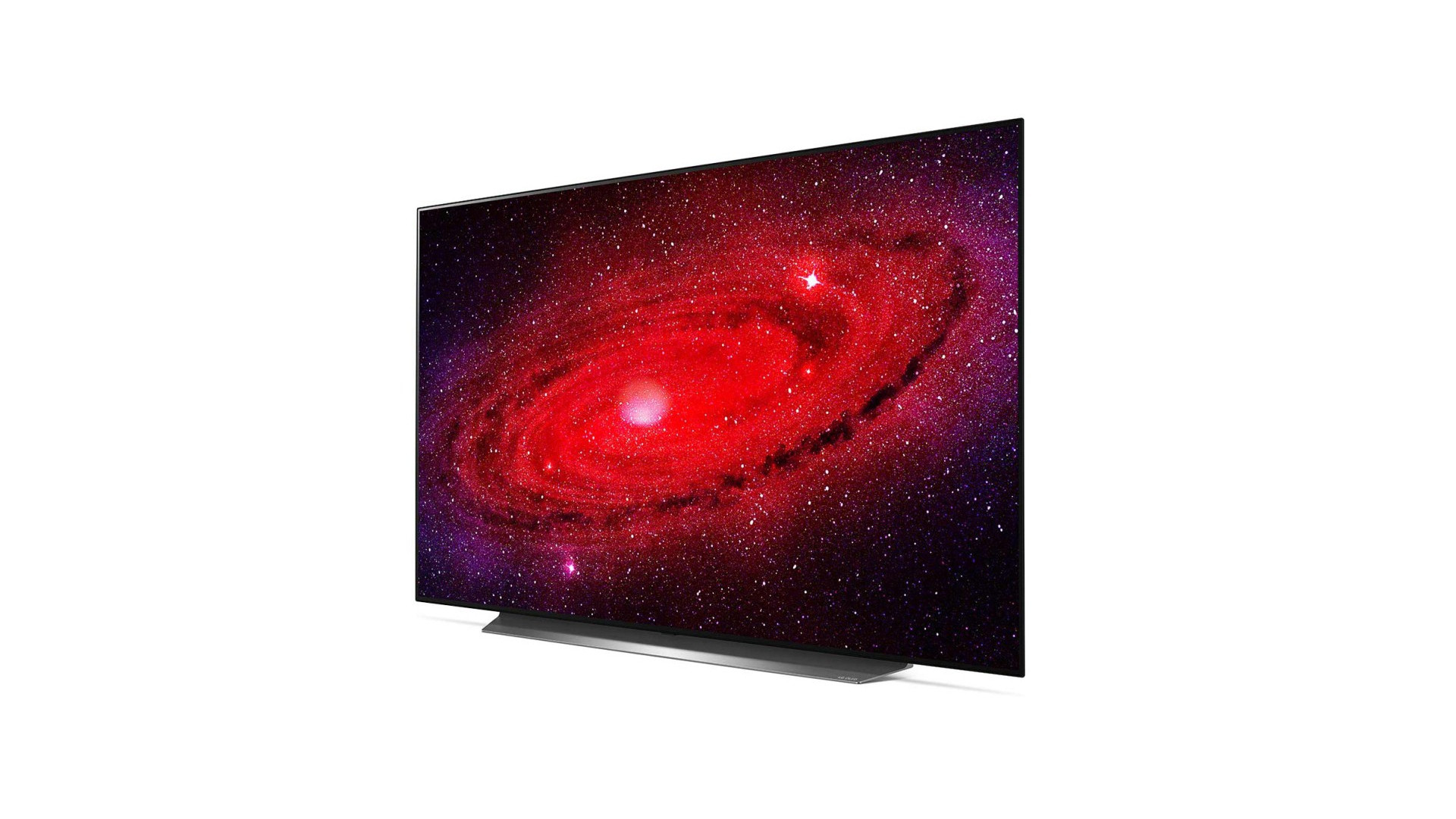
The LG OLED65CX has a wider stand but otherwise looks very similar to the BX.
LG CX vs LG BX: Design and connectivity
What we've seen of the BX thus far looks eerily similar to last year's B9, and that's not a bad thing. The panel takes advantage of the self-illuminating nature of OLED by being housed in an ultra-thin cutaway, with the main processing guts of the TV stuffed in a box in back; stand-wise, it's angular brushed metal, which we're at worst indifferent towards.
The CX's stand is a little wider than that of the BX, much like the C9 to which it owes its appearance. Otherwise the two look outwardly very similar, with trim bezels (slightly trimmer on the CX) and an unassuming frame. Inside, both take advantage of LG's rather slick webOS operating system, which is on the least obtrusive end of TV platforms.
The BX and CX (and, indeed, the rest of LG's 2020 OLED range) feature HDMI 2.1 ports, and all the support required to exploit their full potential. This means 4K at the full 120Hz the panels can handle, Variable Refresh Rate, Auto Low Latency, the whole shebang for PS5 and Xbox Series X.
That's impressive for the CX, but even moreso for the cheaper BX: it's bottom of LG's OLED line-up, but top-shelf stuff when it comes to everything you're going to want to connect to it in the next few years. That's real future-proofing, and something even the much more expensive Sony A8 doesn't offer.
Both also feature G-Sync and (we're promised) eventual Freesync support for PC gamers and, tangentially, both include LG's ThinQ AI engine, which confers Alexa and Google Assistant connectivity with it.
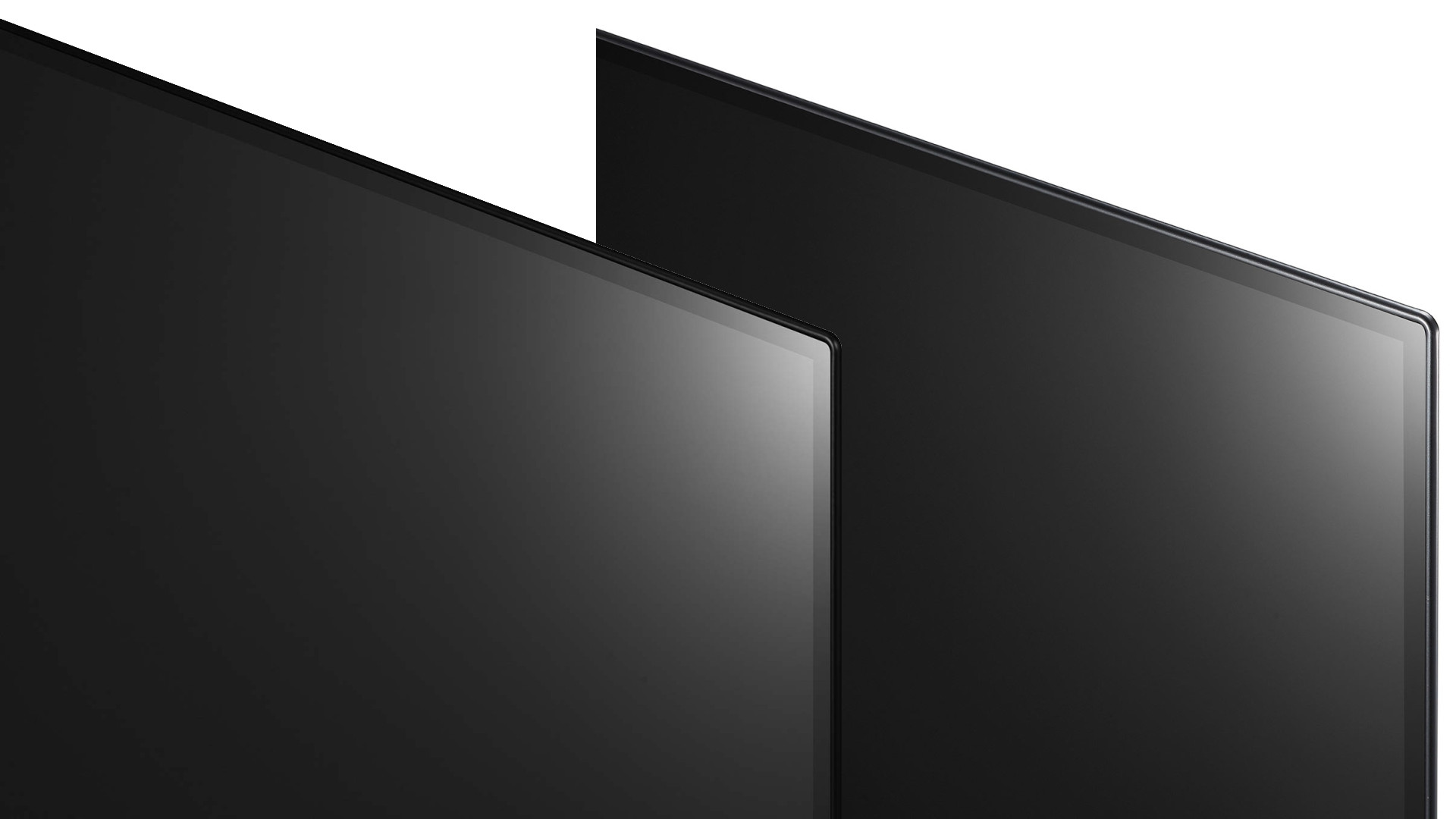
The CX (left) has very slightly narrower bezels than the cheaper BX.
LG CX vs LG BX: Picture quality
We start to see the differences between the panels here, although you have to look hard: both have the superior contrast advantages of OLED, and do an impressive job of covering the HDR and SDR colour gamuts.
Difference one is the processor, which in the CX is the same third-gen a9 picture engine that the GX, WX, and ZX carry. The BX, instead, gets the model below in the form of the a7 gen 3, which means a little less nuance in how it handles darker scenes, and lesser AI upscaling – that might sting on the 65-inch model, where any imperfections will be more obvious.
That's the only fundamental difference between the two processors; each does a stand up job of making things look fantastic otherwise, and features options like de-judder and black frame insertion for motion blur reduction.
On the BX, using black frame insertion might not be top of your list, since the tests we've seen suggest the panel inside the BX is already on the dimmer end of OLEDs.
It manages a peak brightness around 500 nits, which is a long way behind backlit QLEDs and a definite step down from the CX's 650 nits (in Cinema mode). Both get Filmmaker Mode, if you want a more raw experience, and both support Dolby Vision IQ for brightness adjustment based on the ambient conditions in your room.
The combination of the CX's extra brightness and the way it offers improved handling and detail in dark scenes means it gives you more HDR spectacle than the BX, and is definitely a slightly better performer, but the difference is not transformative.
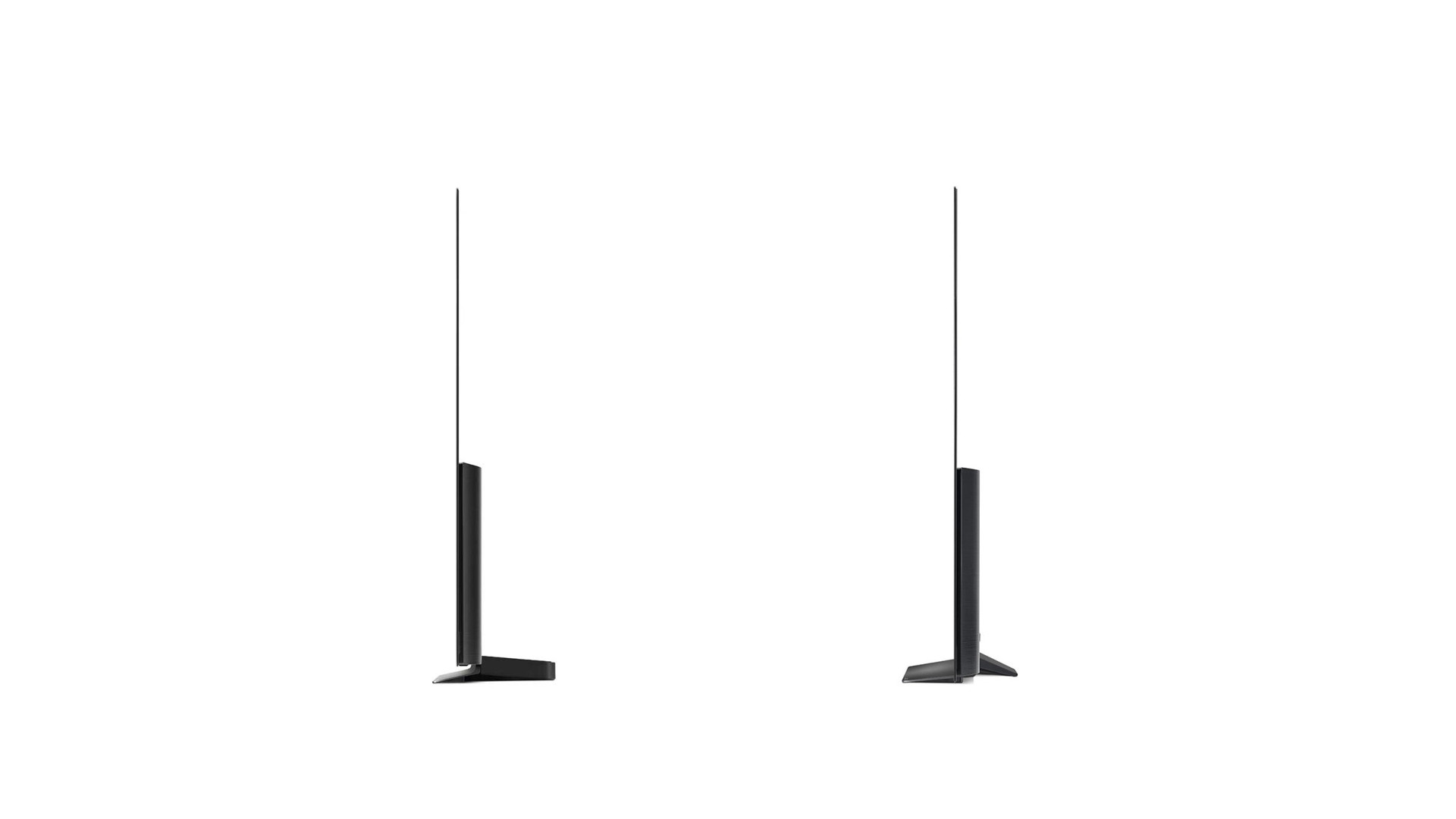
Both the CX (left) and BX sport a very slim profile.
LG CX vs LG BX: The verdict
We've not yet had chance to put the LG BX series through its paces, though we were thoroughly impressed by the CX. Realistically it seems unlikely that the BX will disappoint; there's a little less power inside, and a slight reduction in brightness on the panel, but the two lines share so much DNA that there's little to choose between them bar the price.
Both are ready for the full range of next-gen gaming features. Both are classy, attractive TVs with great contrast ratios. If you're happy to pay a little more for a more advanced picture processor and stronger AI upscaling, the CX is for you; if you want a great OLED experience that barely skips a beat and doesn't skimp on features, go BX.
A lot of people will be choosing between the two cheapest options: the 48-inch LG CX and the 55-inch LG BX. We'd say the way to pick is very much what it looks like – pick the BX if you want the bigger-screen bang for buck, knowing that you're still getting really strong image quality and future-proofing in that; get the CX if you want to focus on getting the best possible image quality and either don't want to or don't mind going bigger.

T3 magazine's own Gadget Guru is a 25-year veteran of the tech writing wars, and has the scars to prove it. He's written for the UK's biggest technology publications, and knows everything from smart doorbell voltage needs to how to bend Windows to his every whim.
